
The Cleveland Clinic Foundation Parkinson's Inpatient Program is a proactive, multidisciplinary intervention aimed to enhance the quality and safety of care for hospitalized patients with Parkinson disease.

The Cleveland Clinic Foundation Parkinson's Inpatient Program is a proactive, multidisciplinary intervention aimed to enhance the quality and safety of care for hospitalized patients with Parkinson disease.

Take 5 minutes to catch up on NeurologyLive®'s highlights from the week ending June 28, 2024.

The director of the OhioHealth ALS Clinic and vice chair of the ALS Association Care Services Committee discussed the upcoming ALS Nexus Conference and how themes of the event align with the direction of clinical care. [WATCH TIME: 3 minutes]

Anaya, a young woman with myasthenia gravis, discusses her challenges and triumphs living with a rare disease. She shares her personal story of advocacy and community, finding strength in the disease's impact on her independence and identity.

As part of our monthly clinician spotlight, NeurologyLive® highlighted seizure disorder expert Danielle Andrade, MD, MSc, FRCPC, director of the Adult Genetic Epilepsy Program at the University of Toronto.

Mind Moments®, a podcast from NeurologyLive®, brings you an exclusive interview with Anne Marie Morse, DO, FAAN. [LISTEN TIME: 18 minutes]

In this segment, Negroski comments on the realism behind wearing off effect of treatments, specifically ocrelizumab, and how clinicians may work around some of these issues.

Additional data of a phase 2 study presented at the 2024 SLEEP Annual Meeting demonstrated that pitolisant significantly improved in secondary end points among patients with myotonic dystrophy type 1.

Negroski discussed some of the takeaways from an analysis of patients with stable MS who chose to switch from natalizumab to other, more moderate-efficacy oral disease-modifying therapies.

Clinically meaningful reductions in seizures through fenfluramine is likely to contribute to nonseizure benefits such as improvement in comorbidities, decreased use of other antiseizure medications, and reduction in premature death.

Istradefylline led to significant reductions in tremor and motor symptoms in patients with Parkinson disease over 24 weeks.
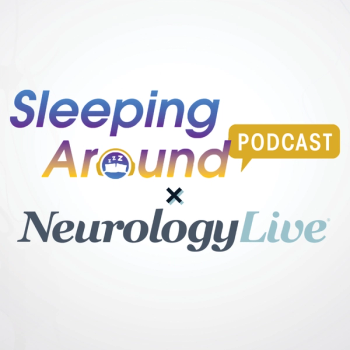
Sleeping Around the Podcast × NeurologyLive brings you a clinical overview of the importance of calcitonin gene-related peptide protein in sleep, and some previously published data to support the role it plays.

Findings revealed that 27% of patients responded to the treatment of continuous subcutaneous apomorphine infusion and sustained efficacy overtime in patients with Parkinson disease.
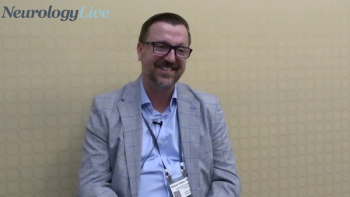
The movement disorder specialist at Texas Movement Disorder Specialists talked about a comprehensive panel discussion that highlighted the evolution of Parkinson disease treatment. [WATCH TIME: 4 minutes]
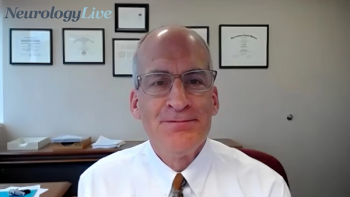
In honor of Insomnia Awareness Night, the president of the American Academy of Sleep Medicine board of directors talked about increasing awareness of the sleep disorder for the clinical and patient community. [WATCH TIME: 6 minutes]

The director of the Center for Sleep and Cardiovascular Outcomes Research at University of Pittsburgh talked about a phase 3 trial assessing a pharmaceutical treatment, AD109, in sleep apnea.

Bezisterim has shown potential in improving non-motor symptoms like fatigue and sleep issues, with promising results from previous studies.

Modified Functional Status Questionnaire, an assessment of activities of daily living, includes several different notable domains, including quality of interaction, social activity, and psychological function.

In the CRL, the agency cited observations identified during inspection of a third-party manufacturer listed in the NDA. If approved, ABBV-951 would be the first subcutaneous delivery option of carbidopa/levodopa.

The director of the Memory Disorders Program at Georgetown University talked about newly approved anti-amyloid antibodies that show significant promise in slowing Alzheimer disease progression. [WATCH TIME: 5 minutes]

Although the data used predated 2019, istradefylline was associated with a statistically significant lower odds of the overall incidence of treatment-emergent adverse events than other adjunctive therapies for Parkinson disease.

StrivePD and Apple Watch continuously track motor symptoms, aiding neurologists in adjusting treatments for better patient outcomes.

In a large-scale analysis. 70% of patients with essential tremor and 70% of undiagnosed patients reported dissatisfaction with the therapeutic options available to treat their condition.
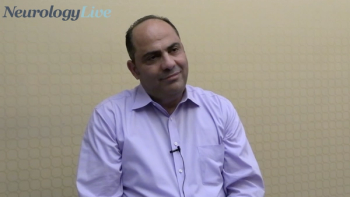
The associate professor of neurology at Georgetown University Medical Center talked about disease-modifying therapies for movement disorder-related dementia that aim to address the underlying mechanisms of the disease. [WATCH TIME: 5 minutes]
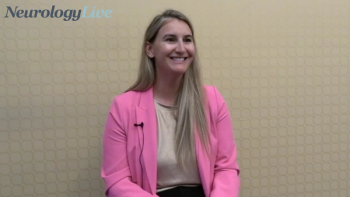
The executive director of the Association of Movement Disorder Advanced Practice Providers talked about the need for improved communication and trust of the patient-provider relationship in the field of movement disorders. [WATCH TIME: 3 minutes]

The assistant clinical professor of medicine at Medstar Georgetown University Hospital talked about her presentation at ATMRD where she covered various advanced therapies for managing Parkinson disease and essential tremor. [WATCH TIME: 5 minutes]

Pitolisant is the first and only drug in the class of antagonist/reverse agonists of the histamine H3 receptor for the treatment of patients with narcolepsy.

Here's some of what is coming soon to NeurologyLive® this week.

Approximately 83% of patients reported that they did not disclose to their provider that they experienced symptoms or had concerns about living with a movement disorder.
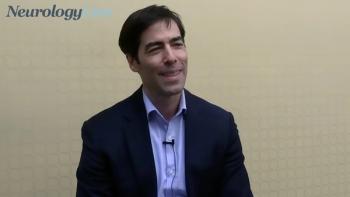
The director of movement disorders at the Banner Sun Health Research Institute talked about that although synuclein biomarkers have shown high sensitivity in identifying Parkinson disease, further studies are needed to address their limitations. [WATCH TIME: 3 minutes]